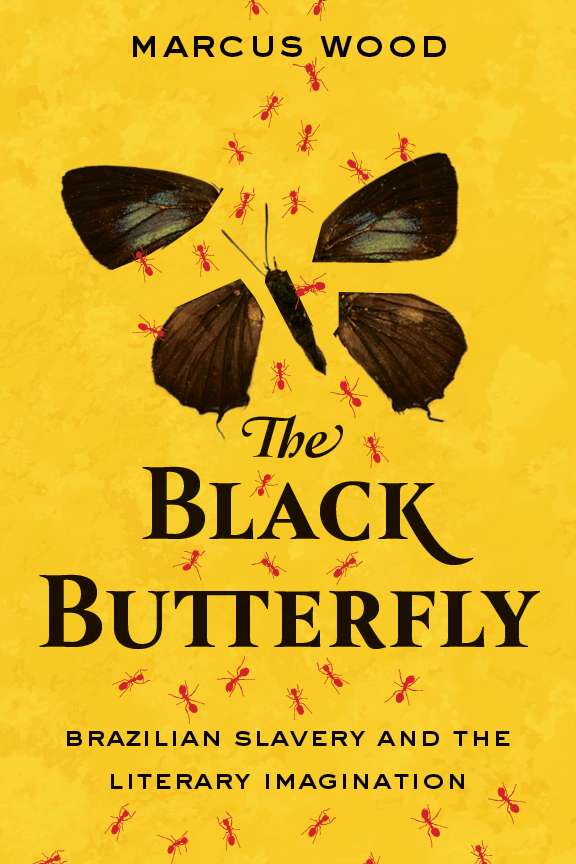The Black Butterfly: Brazilian Slavery and the Literary ImaginationPosted in Books, Brazil, Caribbean/Latin America, Literary/Artistic Criticism, Media Archive, Monographs, Slavery on 2020-01-31 18:13Z by Steven |
The Black Butterfly: Brazilian Slavery and the Literary Imagination
West Virginia University Press
October 2019
360 pages
Paperback ISBN: 978-1-949199-03-1
Cloth ISBN: 978-1-949199-02-4
eBook ISBN: 978-1-949199-04-8
Marcus Wood, Professor of English
University of Sussex
The Black Butterfly focuses on the slavery writings of three of Brazil’s literary giants—Machado de Assis, Castro Alves, and Euclides da Cunha. These authors wrote in the late nineteenth and early twentieth centuries, as Brazil moved into and then through the 1888 abolition of slavery. Assis was Brazil’s most experimental novelist; Alves was a Romantic poet with passionate liberationist politics, popularly known as “the poet of the slaves”; and da Cunha is known for the masterpiece Os Sertões (The Backlands), a work of genius that remains strangely neglected in the scholarship of transatlantic slavery.
Wood finds that all three writers responded to the memory of slavery in ways that departed from their counterparts in Europe and North America, where emancipation has typically been depicted as a moment of closure. He ends by setting up a wider literary context for his core authors by introducing a comparative study of their great literary abolitionist predecessors Luís Gonzaga Pinto da Gama and Joaquim Nabuco. The Black Butterfly is a revolutionary text that insists Brazilian culture has always refused a clean break between slavery and its aftermath. Brazilian slavery thus emerges as a living legacy subject to continual renegotiation and reinvention.
Contents
- List of Illustrations
- Introduction
- 1. Castro Alves, O Navio Negreiro, and a New Poetics of the Middle Passage
- 2. Castro Alves, Voices of Africa, and the Paulo Affonso Falls: From African Monologic Propopeia to Brazilian Plantation Anti-Pastoral
- 3. Obscure Agency: Machado de Assis Framing Black Servitudes
- 4. “The child is father to the man”: Bad Big Daddy and the Dilemmas of Planter Patriarchy in Memórias Póstumas de Brás Cubas
- 5. Magnifying Signifying Silence: Afro-Brazilians and Slavery in Euclides da Cunha, Os Sertões
- 6. After-Words and After-Worlds: Freyre, Llosa, Slavery and the Cultural Inheritance of Os Sertões
- Conclusion
- Notes
- Index
